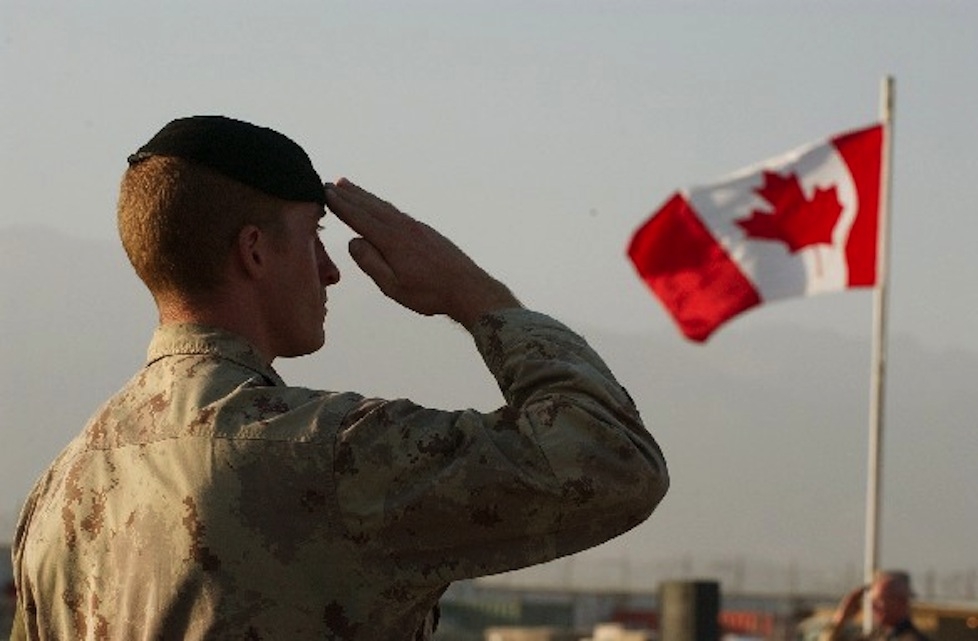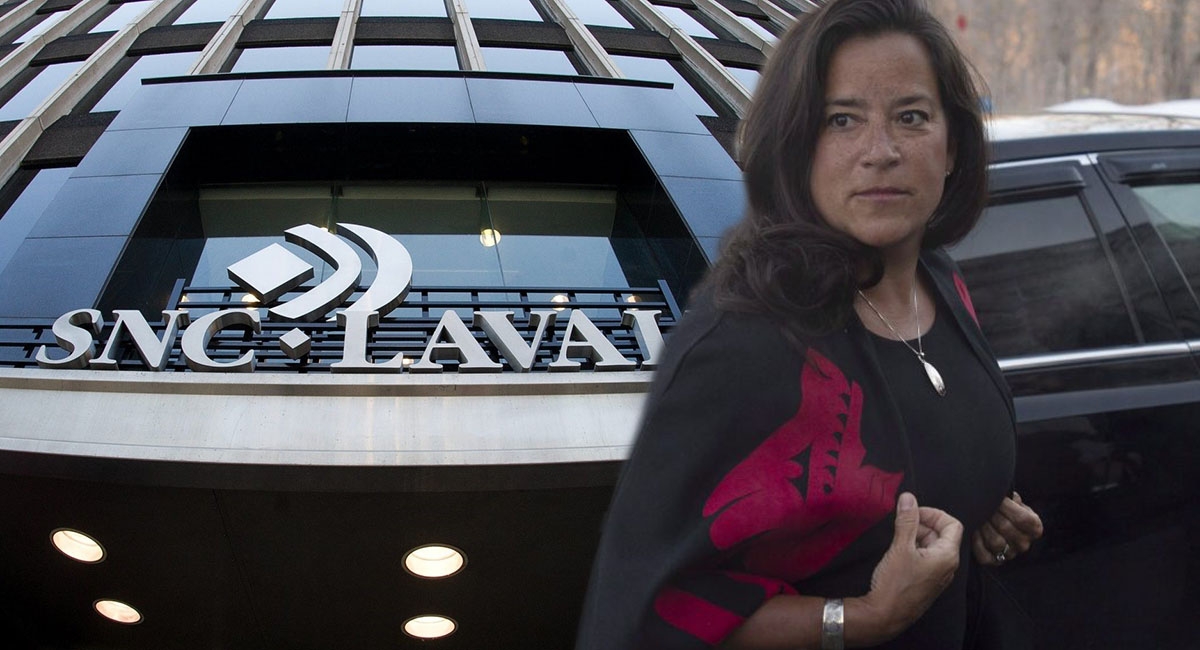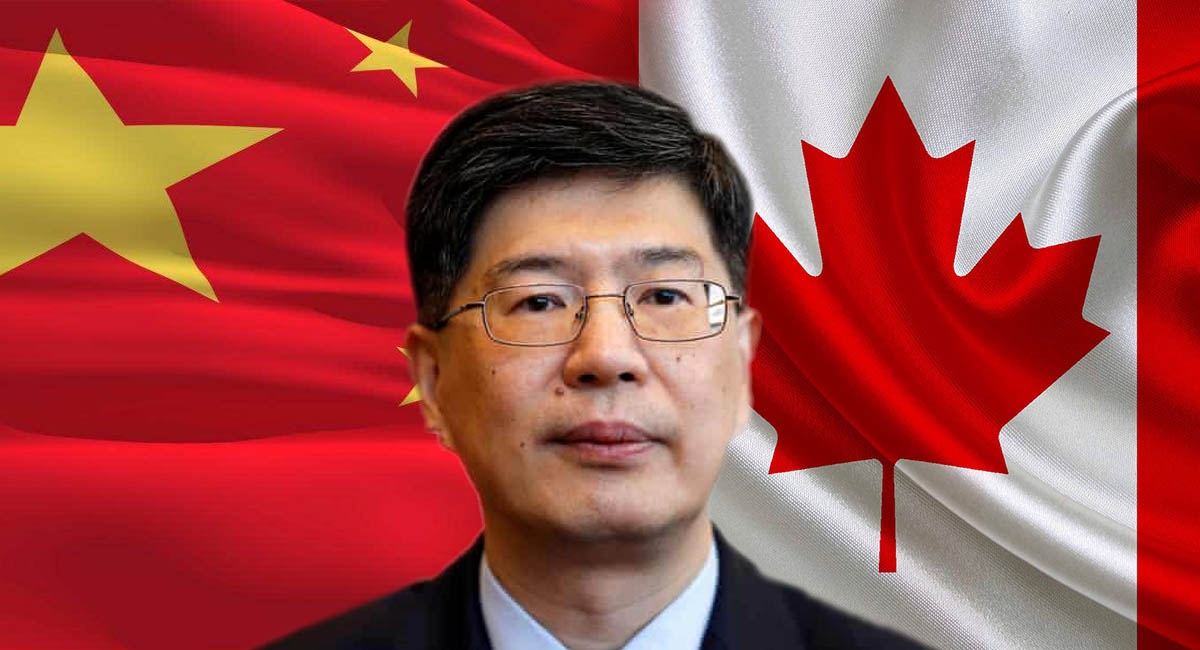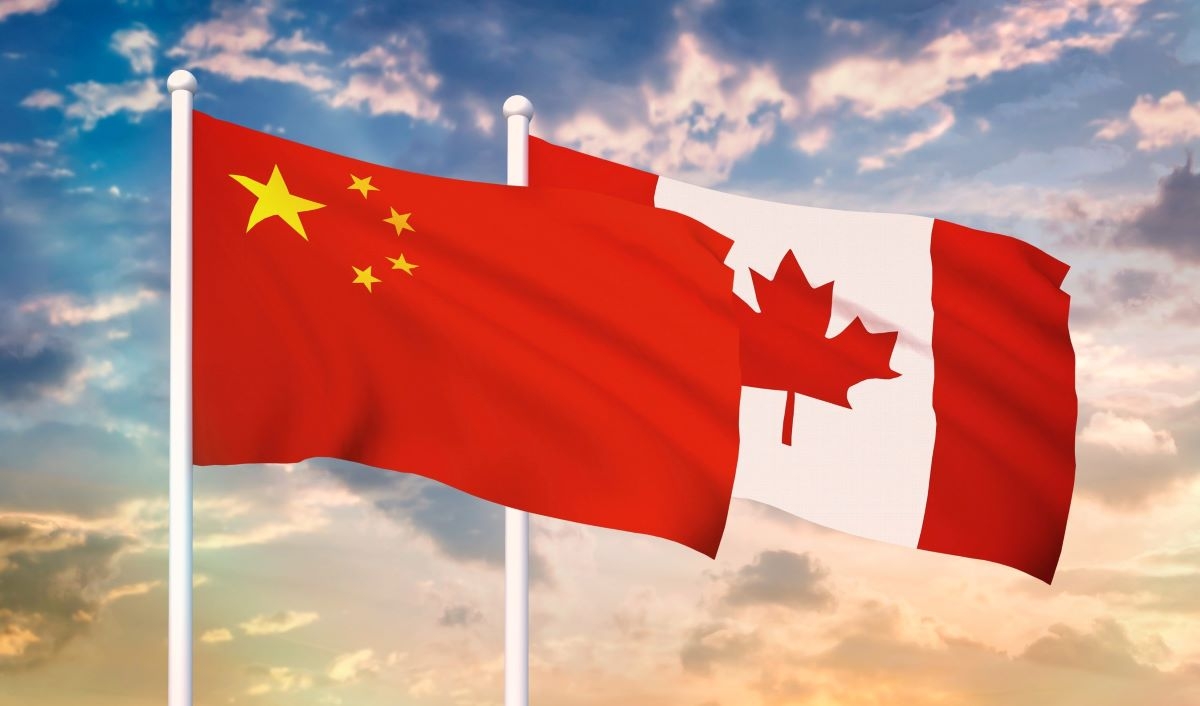
Broken Trust: High-Stakes Fallout of The Conduct of a Sexual Nature Allegations in the CAF
Decimation of Senior Canadian Military Leadership Cadre Deserves Investigation
by Brett Boudreau
In an Ottawa courtroom, on September 16th, Justice Matthew Webber delivered an unequivocal ‘not guilty’ verdict in the criminal court trial of retired Vice-Adm. Haydn Edmundson, accused of exposing himself to, and raping a female sailor on board a Canadian military support ship on exercise while alongside in Pearl Harbor in November 1991. The judge’s decision had been twice-delayed, thereby marking nearly 3½ years from the time allegations against Edmundson became public, to the verdict.
In a nearly three-hour ruling, Webber systematically dissected the case, saying the complainant’s testimony in parts was “clearly tainted”, with evidence that was, variously, “altered then retracted,” sometimes “fantastical,” “materially altered from that provided police,” and even “completely implausible and unbelievable.” Afterward, defence lawyer Brian Greenspan called the verdict “clear, decisive vindication,” saying ”senior military leadership rushed to judgement,” and that Edmundson and family “were deserted by the community they were once proud to be a part of.” There was no immediate word from the Crown about an appeal, but on the strength of the ruling, that seems unlikely.
For those keeping score, that’s naught-for-four in trials – three criminal and one court-martial – featuring charges of sexual assault or implied sexual impropriety against senior Canadian Armed Forces (CAF) general officers. In a nine-month period in 2021, more than a dozen – astonishingly, 10 of major-general rank and above, or 20 percent of the 48 senior-most officers in the entire military – stood charged or accused of sexual assault, questionable behaviours, or conduct deficiencies of a sexual nature (the latter formulation has recently replaced the term ‘sexual misconduct’ in the CAF).
This group of 10 included one admiral, a just-retired general, six lieutenant-generals/vice-admirals, and two major generals: nearly all retired early from the CAF in some public disgrace or were forced to retire. In particular, the unsuccessful military-led investigations and efforts to charge, then sideline Maj.-Gen. Dany Fortin, Lieut.-Gen. Trevor Cadieu, Lieut.-Gen. Steve Whelan, and now Edmundson, should mark a watershed moment and ‘learning opportunity’ in the oft-tumultuous military cultural change and evolution journey.
The maladministration of policy and process, largely self-inflicted, that led to this point is a significant failure of political and DND/CAF leadership especially from early-2021-on, and demands an independent external review or Parliamentary inquiry. The evidence to date suggests a deeply dysfunctional military police investigation and prosecution service; negligent investigations, complainant bias and charges poorly formulated; reprehensible behaviour to delay and deny documents and evidence to those accused; poor direction and oversight by senior CAF and DND leaders; inappropriate influence of career administration processes; a lack of fairness and proportionality; petty vindictiveness by leaders (such as removing photos, Soviet-era style, of accused from the walls of defence headquarters as if to erase their service, and initiating a type of release item that would lead to a loss of severance pay); and a political/senior official/senior officer cadre quick to judgement and quick to public comment, eschewing due process.
The result of this approach has done very little to bring justice for victims of military sexual violence. It has also meant years of mental anguish for victims, complainants and those not afforded due process, more than $1B in class-action suit payouts by Defence ($900M for sexual misconduct, $150M for systemic racism), multiple lawsuits, significant wasted investigation, prosecution and administrative effort, careers and relationships destroyed, plummeting morale and damage to organizational reputation, all leading to severe impacts on recruiting and retention.
This drama, having played out in grim detail in media and in the courts over several years, has inevitably made it more difficult for victims to come forward to report conduct deficiencies, harassment or crimes. These events are central to the CAF “existential crisis” (a characterization by former Chief of the Defence Staff Gen. Wayne Eyre), the recruiting/retention “death spiral” (Defence Minister Bill Blair), and internal surveys that show a deep loss of trust and confidence by CAF members in military justice, their senior leadership, and the institution. As Eyre indecorously recounted for attendees at the July 2024 CDS change of command ceremony, in the early days of his appointment, Prime Minister Justin Trudeau told him he had been given a ‘turd sandwich’ with Eyre replying, “yes sir, but you forgot the bread.”
Such a base characterization of this national institution and of this issue is hardly a joking matter; rather, a better understanding of how we got here, and whether things have changed is needed. That is not an apologia for bemedalled general officers (or non-commissioned members/officers) of long service and healthy pensions. Nor is it a criticism of those who experienced trauma and had the courage to share their stories. Allegations of misconduct need to be proactively, fairly, ethically, and thoroughly investigated by competent authorities, in a timely manner. The need for a victim-centered, trauma-informed approach is critical but due process is also important, as is the presumption of innocence, fairness, impartiality and proportionality. The Fortin, Cadieu, Whelan and Edmundson cases – and some of the others that dominated headlines in 2021 and since – suggests several common disconcerting features:
• Failure to apply existing policies for removal from an appointment thereby denying due process, fairness and opportunity to make representation in their defence.
• Public defamation in national media by politicians and senior Defence leaders, with information leaked thereby magnifying reputational harm.
• Improper influence by political authorities and military leadership to affect police, justice and administrative processes.
• Reprehensible maladministration by military police regarding the collection of all relevant evidence, the timely disclosure of allegations made against the accused, and timely disclosure of statements and documentation to the accused so they could defend themselves.
• At trial end, no personal or public effort by Defence to admit any wrong or shortcoming in approach, nor reasonable effort at reconciliation or restoration but instead, subjecting the accused to onerous administrative reviews and punishments in lieu of convictions.
Six years ago when facing a historical allegation of his own, Prime Minister Trudeau observed that, “people experience things differently and we have to be more thoughtful and that’s a big part of the collective awakening we have to have.” Fair enough. For a national institution like the CAF in such straits, we should also wish to know, what has the institution learned? And is anyone accountable – for any of the actions and outcomes?
The recent revelations are not the first time the Canadian military had rightly been placed under intense public scrutiny for questionable behaviour, sexual misconduct, and the maltreatment of women and men in its ranks. The May 1998 Macleans magazine series of articles (Rape in the military) that first seriously broached the subject was shocking, but in large measure denied and rebuffed by Defence. In 2014/2015, Maclean’s and L’Actualité sparked renewed media reporting and public interest in the issue, by highlighting how senior military leaders were in denial about the scale and scope of the problem – a troubling assessment later confirmed by several Statistics Canada surveys.
This media attention set in motion a series of actions and developments including the Justice Marie Deschamps report in 2015 (concluding that sexual misconduct was “endemic” in the CAF), the earnest but ultimately unsuccessful Operation HONOUR effort in 2015, and the sexual misconduct class-action settlement against Defence in 2019 (with nearly 26,000 claims and nearly 6,000 requests received for restorative engagement).
The government got serious only after under intense media, political, and CAF member pressure to “do something” following the Winter 2021 revelations against the outgoing and the newly installed chief of defence staff, and as the crisis grew wider in scope, and wilder. Amidst collapsing morale, the no-nonsense former Supreme Court Justice Louise Arbour was appointed to conduct an independent review, delivering a sobering report in 2022 with 48 recommendations, all of which were accepted. Also in April 2021, Defence created a new ‘Level 1’ organization at three-star rank – chief professional conduct and culture – headed by newly promoted Lt.-Gen. Jennie Carignan. The directive establishing the office noted the CAF had not evolved “apace with the rest of society,” and listed 17 (!) inappropriate and negative behaviours to fight. A national apology, a requirement of the class action suit, took place in December 2021.
The scandal engulfing the institution in many ways was a new phase in the unresolved crisis of 2014/2015 but also decidedly different, marking the first time that accusations of criminal behaviour were directly levelled against its senior-most leaders. With each new disturbing development, the unprecedented loss of public and CAF member confidence put significant pressure on political and military leaders to appear concerned, and this time, to be taking decisive action. Public statements and actions implied the accused were guilty, and they were treated as such.
In March 2021, Edmundson stepped down as head of military personnel, following a CBC TV story featuring the complainant. Two charges – sexual assault and committing an indecent act – were laid in December 2021. The two-week trial took place in February 2024, with final submissions heard in April. Edmundson testified he was forced to retire from the CAF in 2022.
In May 2021, Maj.-Gen. Dany Fortin was removed from his assignment leading the national COVID-19 vaccine rollout, “pending the results of a military investigation,” later charged with one count of sexual assault, and acquitted in December 2022. He sued for $6M and settled out of court in October 2023 for an undisclosed sum. The military police complaints commission (MPCC) continues their public interest investigation of his formal complaint of a biased and partial military police effort, insufficient evidence and undue pressure on investigators to accept the complainant’s allegations at face value. Fortin was forced to retire from the CAF in 2023.
In October 2021, the Ottawa Citizen reported Lieut.-Gen. Trevor Cadieu’s appointment as the incoming Canadian Army commander had been cancelled the month previous, following two allegations dating from 1994/95 when he and the complainant were officer cadets at military college. In June 2022, Cadieu was charged with two counts of sexual assault. In October 2023, the case was stayed because Cadieu’s Charter rights had been violated as a result of delays in the disclosure of statements and the evidence provided by military police. The stay saved both parties the trauma of appearing in court, but meant the opportunity to be heard in court was lost. “Someone should be held accountable for allowing nine months to elapse before providing defence counsel with the complainant’s first statement,” wrote Justice Larry O’Brien in his ruling. “That someone is not defence counsel… It is not enough for the military to hand off ‘the file’[to Crown counsel] … without providing essential disclosure.” His future in the CAF over, Cadieu had no option but to retire in 2022.
Also in October 2021, Lt.-Gen Steve Whelan was removed as military personnel head (Edmundson’s replacement) following public allegations in media. Whelan was charged in July 2022, allegedly having negatively influenced the complainant’s personnel evaluation report and of having an ‘inappropriate relationship’, making him the most senior Canadian military officer ever to be court martialed. The first day of the trial, military prosecutors withdrew the second charge, presumably in acknowledgement that nothing physical occurred between the two. Days later and minutes before cross-examination of the complainant, the ‘changed assessment’ charge was withdrawn on the basis of “evidence issues”, thereby sparing her, the CDS and VCDS from being called to testify – and removing the opportunity for Whelan to defend himself at trial. Whelan launched a $10 million lawsuit against his accuser and several others, including Gen. Carignan, now the CDS. The narrative of opportunism, leader malfeasance and political influence set out in his blistering statement of claim is yet to be heard in court. Despite no charges, and no complaint against him, Whelan is being administratively forced to retire from the CAF using a punitive release mechanism that he is challenging.
This is not ‘what right looks like.’ Given the tremendous personnel and financial impacts on the institution and its people, years of hindsight of how events from dozens of examples transpired, and armed now with legal decisions in four decisively failed serious cases against very senior CAF leaders, we should want to know:
• Has a formal process been established by the CAF to determine lessons learned from the crisis, and the corrective measures needed?
• If not, what is the specific mechanism to specifically capture, assess, articulate and share findings about the military’s national investigation service, the military prosecution office, the JAG, personnel administrative processes, the role of senior leaders, including the Vice CDS, and of the public affairs functional authority that led public response efforts – to turn lessons observed into lessons learned?
• Is there now a bulletproof playbook for how the CAF will deal with allegations, including those implicating senior-most officers to ensure consistency of approach, fairness, proportionality, due process, and that supports and protects a complainant, and the rights of the accused?
• Does the ‘professional conduct and culture’ Chief-level construct provide the promised added value, or does it wrest responsibility and accountability from units and formations for appropriate behaviour and follow-up?
• Did the particular process of making an injury claim in the Heyder Beattie sexual misconduct class action suit and assessing payout amounts, influence how subsequent events transpired?
• Does historical experience and institutional capability suggest the DND/CAF is capable to objectively self-assess, or is independent external review or Parliamentary inquiry required?
• Is anyone in Defence or at the political level, accountable for anything related to how these events unfolded and the outcomes?
What Now?
The cases of Edmundson, Fortin, Cadieu, and Whelan, the subsequent effort by institutional leaders to punish them despite court findings – plus the lawsuits – are a powerful symbol of systemic leadership and governance problems at Defence. How the issue of military misconduct, including of a sexual nature, has been handled has traumatized the institution and its members, both serving and retired. Avoiding the opportunity to better understand the reasons for positive and negative outcomes virtually guarantees a repeat of bad process, decisions, planning and results across the spectrum of alleged misconduct.
There has been no accountability for CAF senior leaders, Defence senior public servants or politicians whose actions led to: more than $1B in class-action suit payouts; the delay or denial of providing documentary evidence to accused and to the military police oversight body (MPCC); damage to military recruiting and retention efforts; career stalwarts publicly leaving in disgust; diminished trust and morale in the institution; cratering the confidence of CAF members in the administration of military justice; turning senior leaders against each other and against the institution; ruining careers; irreparable damage to personal relationships, professional reputation and personal finances; and, mental health distress for complainants, victims and accused-found-innocent parties.
The silver lining to the 2021 annus horribilus for the Canadian military was that events proved to be a catalyst finally, for a dramatic change of mindset that unlocked a new, deeper understanding of the scale and scope of the military culture problem. This has led to some overdue reforms, important initiatives for victim support, and long overdue improvements to certain promotion selection processes.
The CAF is excellent at operational planning, but poor at self-introspection, dealing with highly sensitive/high-risk personnel issues and remains allergic to outside advice. Defence has proven to be incapable of effecting major institutional change unless overtly pressured during a reputational crisis by external agents like media, political authorities or independent advisory oversight bodies (per Somalia Inquiry, Doug Young reforms post-Somalia, Manley Panel report, Afghan detainee issue, 2012 Auditor-General report on the fighter replacement, Justice Deschamps/Arbour reports, to name a few). The lack of accountability and the stubborn refusal to reform and change to fix maladministration and known shortcomings such as lax openness and transparency, diminishes trust and confidence in CAF leadership and the institution. For an organization in ‘existential crisis’ – nearly all self-inflicted – and mired in a ‘death spiral’, muddling along without an evaluation of what transpired is not good enough.
In the absence of a military Inspector General office, it’s time for an independent, external review or Parliamentary inquiry to learn how the decimation of the senior Canadian military leadership came about. This, with a view to improve outcomes for victims of misconduct and wrongfully accused, to support institutional culture change efforts more broadly, and to regain the lost trust of Canadians and CAF members.
Brett Boudreau is a Fellow with the Canadian Global Affairs Institute, and served nearly 30 years in the Canadian Armed Forces, retiring as a colonel.












